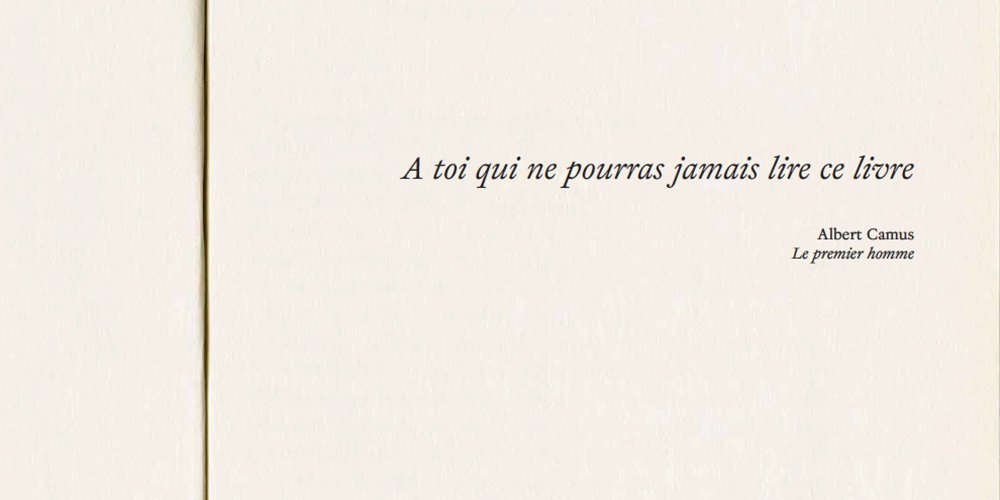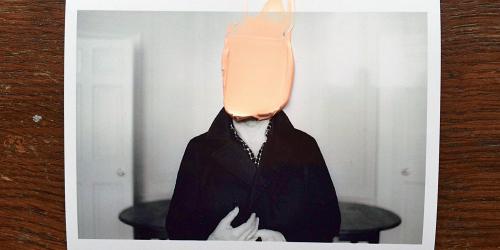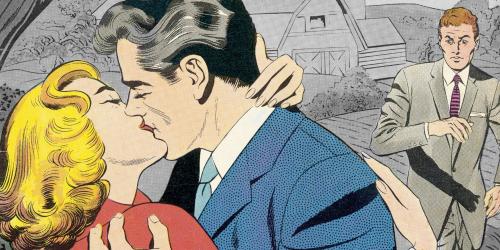"Everything introduced in a novel becomes a sign," says Julien Gracq in Reading While Writing (1). Some words written on an odd page, at the beginning of a book, after the title. "For A.", "A SGL", "A Jessica", "For my parents", "To our dead" ... The story has not begun that the author, who promised us a trip to two, we relegates to the bottom of the coach, placing his little world in front.
These dedications recall that a book is the play of an intimate theater
While we dreamed ideal reader, these messages to the encrypted emotion remind us that the book that we hold in our hands is only for us by accident. "We should end once and for all with the dreadful image of" dear readers "raised on the horizon of the writing and the writer ... The public is admitted to this act of complacency only under of voyeur ", assene, cynical, the author of Rivage des Syrtes. In other words, these dedications remind us that a book is the play of an intimate theater, of which only a few elected representatives would be able to perceive its stake.
In Life of Henry Brulard (2), Stendhal, shunned by his contemporaries, recognizes: "I write for strangers, a handful of elected representatives who look like me: the happy few. The Charterhouse of Parma, The Red and the Black and Promenades in Rome are dedicated to the "happy few". Three writers have seized this ex-voto, customizing it to make it live: The poems of AO Barnabooth Valery Larbaud are dedicated "To the unhappy many" (to the many unfortunate), Blanche or the oblivion of Louis Aragon, " To the unhappy crowd ", and Frédéric Beigbeder's last inventory before liquidation, to the" happy many ".
Dedication contributes to the way an author builds a media figure
Insider offenses or literary tribute of the disciples to the master? "The dedication contributes to the way an author builds a media figure. It is part of a staging of oneself and one's work, "answers Etienne Kern, author, with Anne Boquel, of the most beautiful French faults of our great writers (3). Indeed, nothing pushed Albert Camus to mention his schoolmaster during his Nobel Prize reception speech, nor to dedicate the first man to his illiterate mother. The dedications, or the backstage of the literature. In Ceci est pour vous (4), the journalist Macha Séry traces the history of this practice which, from antiquity to the eighteenth century, "was more or less similar to alms". Writers who depended on the goodwill of patrons, who provided them with income or protection, indulged in epistles that oozed flattery on several pages. In the nineteenth century, the purely economic dimension of the dedication fades, without leaving the sphere of clientelism. Charles Baudelaire and Marcel Proust submitted, paying homage to media owners who could give them chronicles in their newspapers. Madame Bovary is dedicated to "Marie Antoine Jules Sénard, member of the Paris Bar, former President of the National Assembly, and former Minister of the Interior". Without this lawyer, Gustave Flaubert, tried for pornography after publishing the serialized novel in the Revue de Paris, would have failed in prison.
Encrypted privacy
From the twentieth century, the dedication on several pages disappears and becomes the personal tribune of the author. Free to make it a space of autofiction. Herald before the time of an era that blurs the border between the intimate and the spectacle, Frédéric Beigbeder has chosen the exergue to, in five books, play the paparazzi of his own life, and offer to his elects dedications like we offer flowers. In his delightful anthology of dedications, To my dear friend (5), Jean-Christophe Napias unfolds without commentary the micro-biography in love with Frédéric B. Memoirs of a disturbed young man (1990): "For Diane diaphane / Near Maussane. »Holidays in a coma (1994):« For Diane B., / I fell, / The open mouth. "News under ecstasy (1999):" For Delphine / Last name Vallette / Who lives rue de Mazarine / At number thirty-seven. The romantic egoist (2005): "For Amelie. "I want to live all my life / And die in your company / It would be nice to get married / About 4:30 pm today" (June 17, 2003). A paradox of the genre, most authors maintain the mystery about their dedicates, sticking to the wheel of Stendhal and his "happy few".
We need the faith of another, a kindly look
"It's always a personal act, very intimate, and encrypted ... writes Jean-Paul Enthoven, author and publisher. I mean that those to whom I symbolically offer my book have always been designated by enigmatic, indecipherable initials of the public. Understand who can. The dedicatee always understands (if he or she is alive). Leila Slimani dedicated Sweet Song "To Emile", her son. Why this book to him? "It was one day, during the writing, as a mantra, a way to continue our dialogue. The link is secret, only he and I know why I told him
dedicated. Saying without saying, coding, writers play the mysterious. Finally, Eric Reinhardt agrees to decode for us: "The room of the couple is dedicated to Marion, my wife. All my books, with the exception of Love and the Forests, were dedicated to him, in a more or less encrypted way. The dedication of Cinderella was: "More than ever", which meant: "This book is more than ever dedicated to you", that is to say: "I love you more than ever". It's so hard to write. One needs to be worn, listened to, exalted, seconded, and sometimes rescued and cared for, when one loses confidence in oneself, or when one falls and one crushes at the foot of one's book. One needs the faith of another, a benevolent and trusting look. The faith alone of the artist is often not enough to accomplish a lonely path that sometimes lasts three years. "
I wonder when to give the name of another in pasture
The writer Agnes Mathieu-Daudé is divided in front of the double function of this exhibition of the intimate: "I wonder when to give the name of another in pasture, to honor a private person - who does not necessarily want to be in a public place. After all a handwritten dedication would do the trick. But it is a question of paying homage, and the dedication is a sacred space - unlike thanks. "His novel The shadow on the moon (6), jewels dreamed onirism, is dedicated:" To my old masters, To my contemporary diestros. Explanation of text: "To the old masters because we exist only with these guides who opened the way before us - allusion to the painters who accompany me. The formula is a little outdated - a master should be timeless. The old master is also the one who must be exceeded. "Diestros" is a Spanish word difficult to translate. The book is also a tribute to Andalusia and a footballer is one of the characters: "diestro" designates a bullfighter and, more generally, it refers to the skill, the skill of the master. A footballer is not a master for me, but the career of this contemporary idol can inspire me like an epic. We do with what we have. When I need naive enthusiasm, to find the strength to go without worrying about whether it's in a wall or an open door, I watch football. My contemporary "diestros" are also, among my acquaintances, those who inspire me by their behavior, their way of coping with life. They will recognize each other, without my having to risk the shamelessness of naming them or of restricting the list. "
Whatever ... not always. Les panthères grises, Patrick Eudeline's last book (8), is dedicated to Nadir Merabeh, a teenage friend. "He because, first of all, he influenced me a lot. Fascinated by Elvis Presley and the Stones, he wandered with an incredible set. His father had refused to accompany him to Algeria if he did not cut his hair. He's next because he's Arab, and I like it. The rocker journalist does not know what Nadir has become. Never seen again Is he alive? This dedication is a bottle in the sea. A space of freedom, once again.
1. Ed. José Corti. 2. Ed. Folio. 3. Ed. Payot. 4. Ed. Philippe Rey. 5. Ed. The Round Table, released on November 2nd. A huge thank you to the author, whose anthology of dedications we have shamelessly looted. 6. Ed. Gallimard. 7. Ed. Joëlle Losfeld. 8. Ed. La Martinière.




